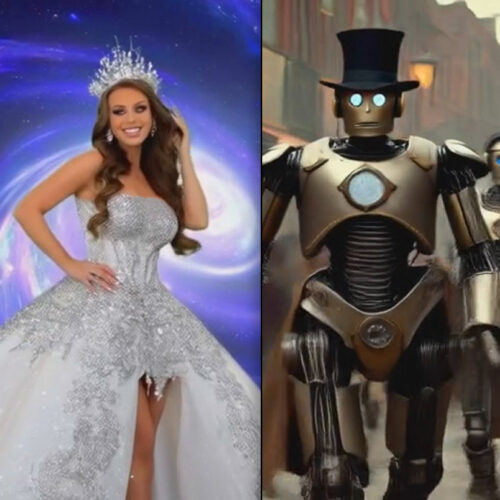Alcohol companies have been bracing for a culture shift. Their nonalcoholic options have buoyed sales.

Henri Leduc/Getty Images
- Major alcohol companies have been bracing for a culture shift favoring nonalcoholic options.
- Younger consumers under the age of 30 buy less alcohol and drink less often.
- Brands like Heineken and AB InBev have rolled out their own alcohol-free offerings, bolstering sales.
Even before the Surgeon General on Friday warned that alcohol can cause cancer and should come with a warning label, big companies like Heineken and AB InBev — the parent of brands like Budweiser and Michelob Ultra — were preparing for a culture shift favoring nonalcoholic options.
Nationwide, spending on most kinds of alcohol has declined in recent years — especially among young adults, Business Insider previously reported.
Younger consumers under the age of 30 have become progressively less likely over the last two decades to drink alcohol at all, with 62% of adults under age 35 saying they drink, down from 72% two decades ago, according to data from Gallup published in 2023.
Big brands have launched non-alcoholic options to cater to a market that, while they don't want a boozy drink, may still want something new to indulge in on a special occasion.
Heineken first released its non-alcoholic beer, Heineken 0.0, in March 2017 in the Netherlands and Germany, expanding its release to the United States in January 2019.
Corona Sunbrew 0.0% debuted in 2022, a product from Constellation Brands — a beverage company that produces beer, wine, and spirits from brands like Modelo and Corona Extra. AB InBev, which produces drinks for 500 global brands including Budweiser and Michelob Ultra, launched Corona Cero the same year. Constellation Brands owns the US brand licenses for Corona beer in the US, while AB InBev owns the beer in the rest of the global market.
And their zero-proof bets are paying off, executives have said in recent earning calls.
Harold van den Broek, Heineken's Chief Financial Officer, said during an October 2024 earnings call that the company is seeing an acceleration in non-alcoholic sales across many markets, including the US, adding that the brand's non-alcoholic options have grown to over 4% of their total portfolio since launching.
"We do believe that this category, which has been growing about 6% on average since 2018, will continue this growth trajectory," van den Broek said. "We have high hopes for the non-alcohol portfolio."
Constellation Brands' president and CEO, William Newlands, shared a similar optimism. During an April 24, 2024 earnings call, he said Corona Non-Alcoholic was "the number one share gainer in the non-alcoholic segment."
"I think that does reflect some change in consumer behavior or people that are concerned about being the designated driver but still want to enjoy an outstanding-tasting beer," Newlands said. "We're going to continue to emphasize the betterment trends as we go forward with a number of our product offerings and certainly expect Corona Non-Alcoholic to continue to grow here in this coming fiscal year as well."
Michel Doukeris, AB InBev's CEO, likewise told investors during an October 21, 2024, earnings call that the company views the non-alcohol beer segment as "a key opportunity to develop new beer consumption occasions" and that development in this market will continue to be a focus of the company's strategy going forward.
"We gained market share of non-alcohol beer in over 60% of our key markets in the third quarter, with Corona Cero more than doubling both volumes and revenues," Doukeris said. "While no-alcohol beer is currently a small portion of our global volume, we believe there is a significant opportunity for incremental growth."
Industry representatives have long warned of a "war on alcohol," a warning which increased in fervor after the late 2023 World Health Organization (WHO) report which indicated even low levels of alcohol increase the risk of cancer and that "no safe amount of alcohol consumption for cancers and health can be established."
However, amid the concern that alcohol sales might dwindle, brands have begun to capitalize on shifting consumer behaviors and buoy their overall revenue. Boston Consulting Group values the global market share of no-or-low-alcoholic beers, wines, and spirits at more than $13 billion, with sales expected to grow at an annual growth rate of over 7% between 2023 and 2027, settling at about 4% of the overall alcohol market.
Eliott Edge, the bar manager at Hekate, New York City's only sober bar, told Business Insider there is "a whole ecosystem" of new non-alcoholic offerings that customers are clamoring for, having witnessed increasing demand for the alcohol-free options firsthand.
"I get the sober, the sober-curious, and folks who still drink but want to take a break for one reason or another," Edge said. "Locals, tourists — everyone wants to see what it's like. So the non-alcoholic options don't cater specifically to any particular group."
As a result, more and more bars and brands are going to offer non-alcoholic options going forward, Edge predicted, "because they're going to realize that it's like vegetarians or vegans or gluten-free or dairy-free. It's just another type of customer profile to cater to — and the ones that don't cater to that are going to go the way of the dinosaur."

